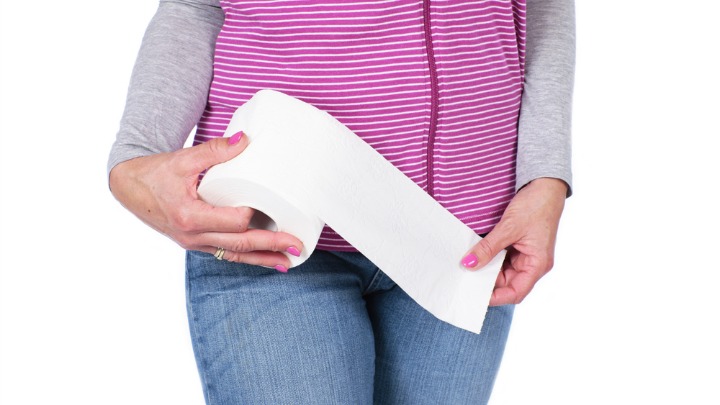Stop the leaks with these 10 tips

If you suffer with incontinence, there are a few self-help tips and lifestyle changes you can make that will help relieve the symptoms.
1. Pelvic floor exercises
Very effective at reducing leakage, pelvic floor exercises can be strengthened by sitting comfortably and squeezing the muscles 10 to 15 times in a row. Don’t hold your breath or tighten your stomach, bottom or thigh muscles at the same time.
Once your used to doing these exercises you can try holding each squeeze for a few seconds longer, and then every week add more squeezes. Just make sure you don’t overdo it, and be sure to take a break between sets of squeezes.
Keep in mind too that it could be up to three months before you start to see any benefit.
2. Butt out
If you’re a smoker you are at a higher risk of incontinence because the coughing you develop when you smoke puts a strain on your pelvic floor muscles. If your incontinence is a real issue you might want to consider quitting, and there are a number of programs that can help you stop smoking.
3. Choose the right type of exercise
High-impact exercises put pressure on your pelvic floor muscles and can increase leakage. If you’re doing sit-ups, you might also leak more because of the strain being placed on your pelvic floor muscles. You might want to ditch the jog and aerobics classes and instead take up pilates, which will also have your strengthening your pelvic floor through its gentle stretching and strengthening methods.
4. Put down that box
Believe it or not lifting puts a strain on your pelvic floor muscles, so if you can avoid it do so. If you are picking up the shopping bags or moving something heavy, tighten your pelvic floor muscles before you lift and ensure they remain engaged while you are carrying the items.
5. Weight plays its part
If you are overweight your pelvic floor muscles are not at their strongest and it can cause incontinence. The pressure of fatty tissue on the bladder can be improved — and could clear completely — if you lose a few of those excess kilos.
6. Constipation
Refrain from straining to empty your bowels because it weakens your pelvic floor muscles and makes your leakage worse. Also avoid delaying going to the toilet. If you are constipated, you might need to look at your diet and lifestyle and make some important changes. Eating more fibre can help.
7. Cut back on caffeine
Caffeine is an irritant on your bladder and can worsen your incontinence. Coffee has the largest effect on how bad your incontinence is, so you might want to consider cutting it from your diet completely. However, soft drinks, tea and chocolate also contain caffeine.
8. Limit your alcohol
Alcohol is a diuretic, which is a substance that makes you want to wee more often. You don’t have to cut it out completely, but reducing the amount your drinking could be beneficial.
9. Drink more water instead
A lot of those who suffer urinary incontinence limit or avoid the amount of fluid they drink because they believe it causes more issues. Not so. Limiting your fluid intake makes the incontinence worse because you are reducing the capacity of your bladder. Check with your doctor because there are some conditions that do require you to limit your fluids.
10. Food
Spicy foods and acidic foods — your weekly curry and even citrus fruits — can cause your bladder discomfort and make your incontinence worse.
As always, if you have symptoms that persist, Starts at 60 encourages you to seek professional medical advice.








 Proudly Australian owned and operated
Proudly Australian owned and operated